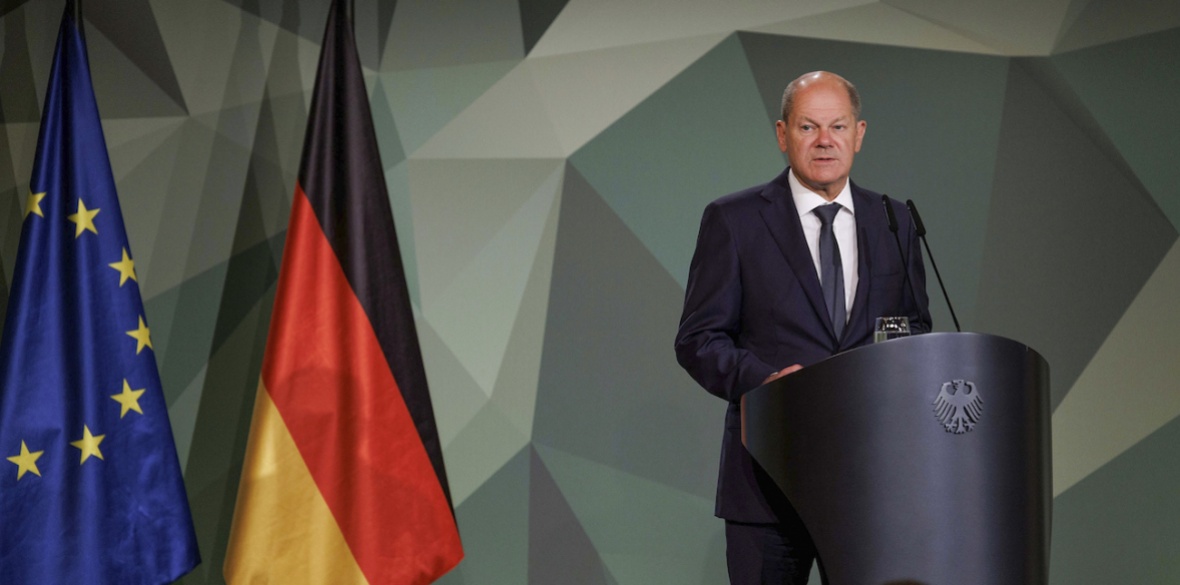This is the last article you can read this month
You can read more article this month
You can read more articles this month
Sorry your limit is up for this month
Reset on:
Please help support the Morning Star by subscribing here
IN late July, the pollster YouGov operating for the non-profit organisation More in Common, took a sample of 7,000 adults from the UK, France, Germany and Poland to find that a majority expressed worry that high inflation due to the current energy crisis could fuel social unrest.
Of the European nations surveyed for this report, one in five people said they were using their savings for survival while one in ten said claimed to be skipping meals.
This summer’s survey was one of many steps within in the media framework and talking points by governments within the EU and Britain that have attempted frame the impending economic disaster that experts have been foreseeing since Russia’s invasion of Ukraine.
Over the past fortnight, we have seen numerous reports on the expected choices many, we are told, will have to make this winter: heat or food.
What a choice that any citizen from a so-called “developed country” would have to make!
Last week, German Chancellor Olaf Scholz announced a series of measures set to correct the expectant rise of energy costs in the coming months.
Energy prices have skyrocketed as Europe has been trying to wean itself off Russian energy following Moscow’s invasion of Ukraine in late February.
The German government has announced a €65 billion plan to help people and businesses handle soaring energy prices as several European nations introduce emergency measures to prepare for a long winter in the wake of interrupted Russian gas supplies to Europe following the Ukraine war.
The French government, keen on forestalling the rise of energy bills even more than it has already, is poised to spend billions of on fully nationalising energy company EDF in in order to take on the energy crisis while shoring up domestic supplies.
By bringing EDF into full state ownership, the French government intends on making investments to reduce dependence on imported fossil fuels.
At the beginning of this year the government announced it would force EDF to limit bill increases to 4 per cent this year resulting in a €8.4bn financial hit to the company.
Italy’s net energy import costs are set to more than double this year to what is estimated to be €100bn.
Italy relies on imports for 75 per cent of its power consumption, making it one of the most vulnerable EU nations to Europe’s current energy crisis.
At a recent emergency meeting, European Union energy ministers asked the European Commission to propose broader gas price caps, even as the EU executive itself swiftly rejected the feasibility of such an idea.
Brussels was handed the task of drafting proposals within a few days to cap the revenues of non-gas energy producers while also seeking to help power firms stay afloat.
The ultimate goal was to protect citizens from soaring energy prices that have led to inflation across Europe.
The EU’s windfall tax plan is yet to be fleshed out but earlier this month it was reported that it would see governments trim off excess revenues from wind, nuclear and coal-fired power plants that can currently sell their power at record prices ascertained by the cost of gas, in order to use this money to curb consumer bills.
The European Commission announced further details on Tuesday September 13 to raise approximately raise approximately €140bn (£121bn) from energy suppliers which would involve applying a levy on non-gas electricity producers and a separate tax on oil, gas and coal businesses.
The windfall tax would also apply to low-carbon energy suppliers where non-gas electricity suppliers reporting revenues above a threshold of €180 per MWh would face the tax.
As spot prices in Germany are trading at more than €450 per MWh, the windfall levy would distribute these excess profits of low-carbon energy suppliers — to include wind, solar and nuclear— to vulnerable businesses and households in Europe struggling with soaring bills.
The proposal has divided opinion among some EU member states.
Polish Climate Minister Anna Moskwa announced filing an official motion for unanimity and Portugal’s Finance Minister, Fernando Medina, expressed this move as unnecessary as his country had already undertaken measures to transfer profits to consumers.
Teresa Ribera, Spain’s energy and environment minister, also criticised the proposal since it does not address the costs of production in renewable energy and the measures proposed do not correspond to the real costs of production.
It is expected that the EU measures could put pressure on British Prime Minister Liz Truss to reverse her rejection of Britain’s windfall tax on energy companies originally introduced by the former chancellor Rishi Sunak.
Czech Industry Minister Jozef Sikela said that EU energy ministers may call another emergency meeting later this month to negotiate and approve the final plans.
Given that it is next to impossible to purchase firewood in Germany and the prices of firewood in Italy have more than doubled, Europe is facing perhaps its most challenging winter since the second world war.
Christmas cards may very well be the only gifts most Europeans can afford this year’s holiday season.










